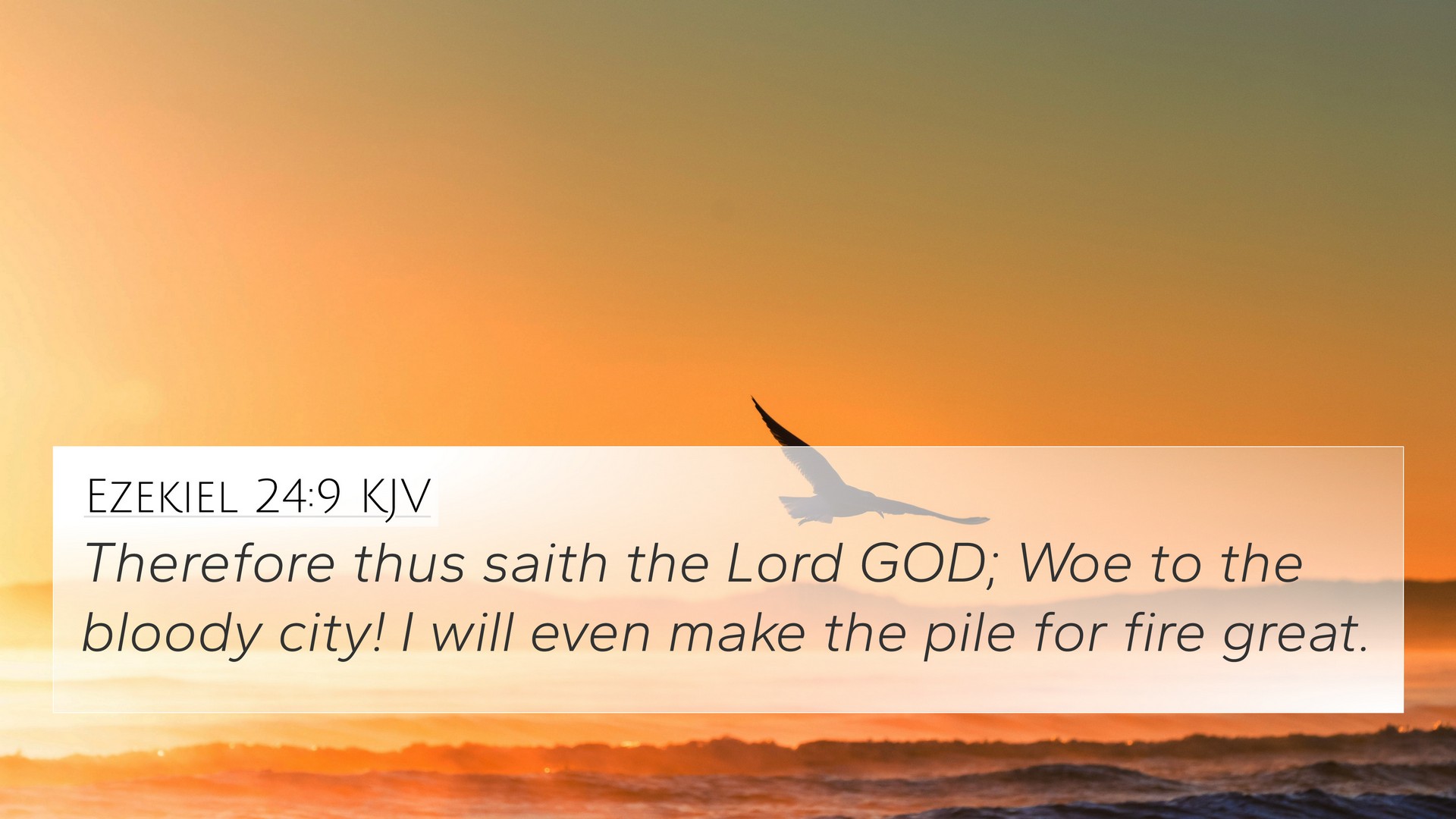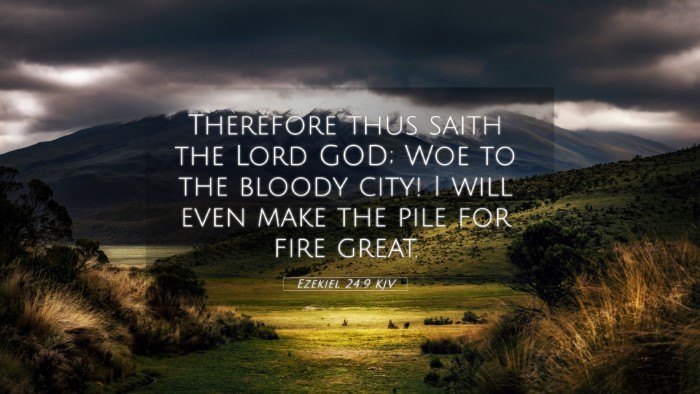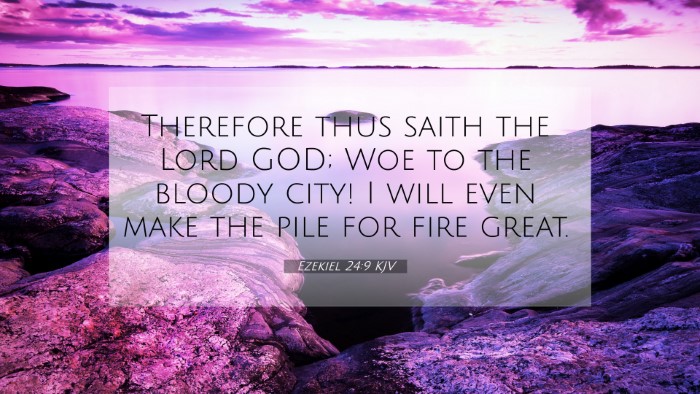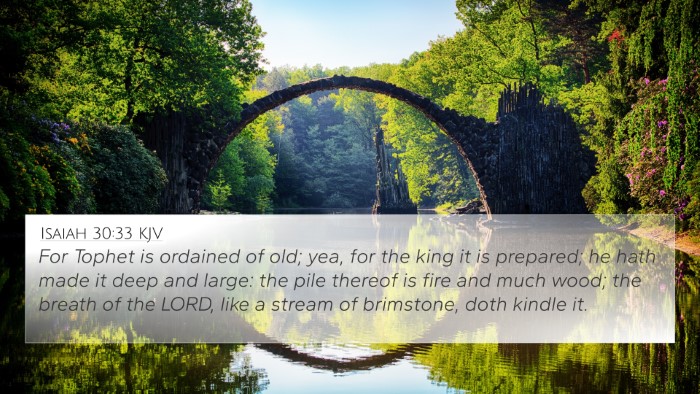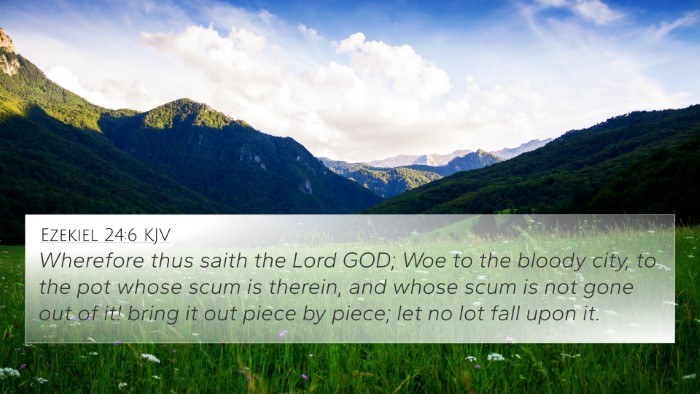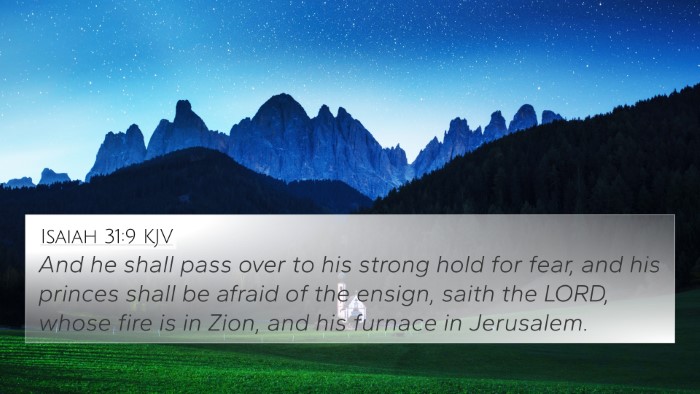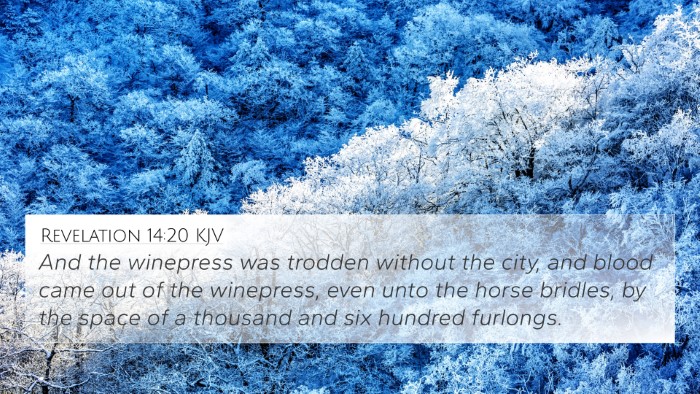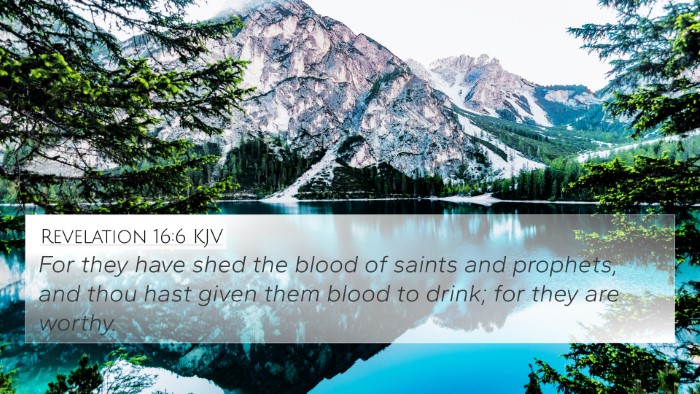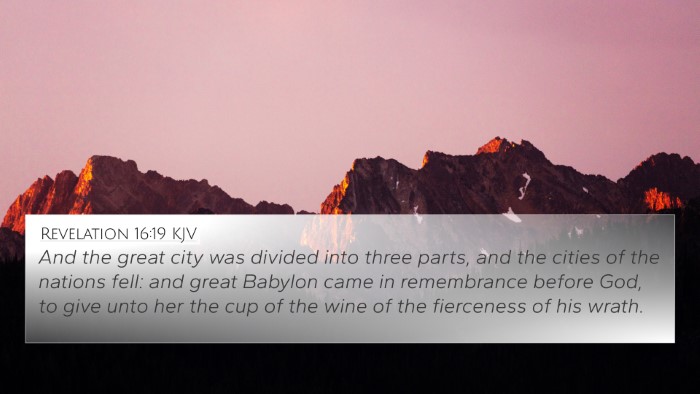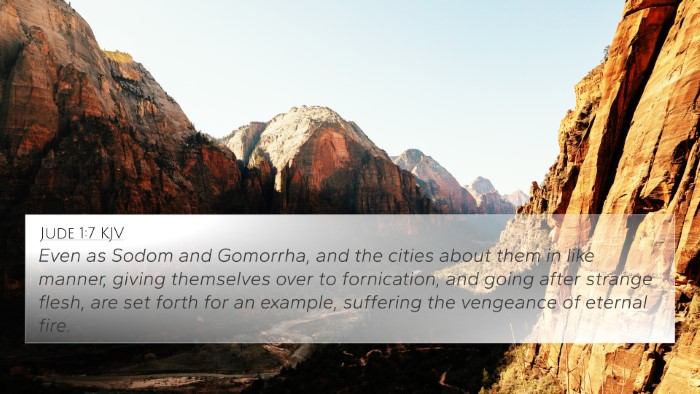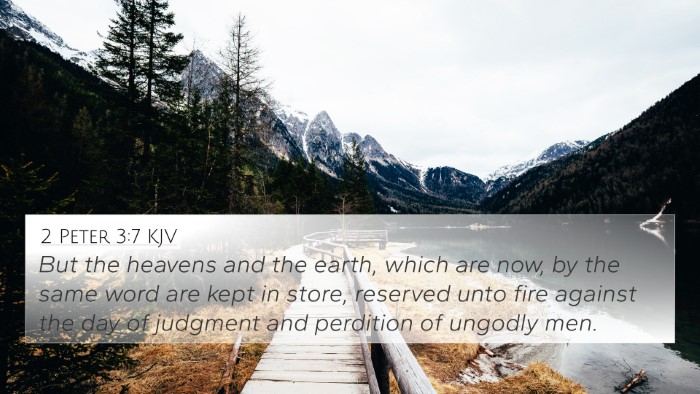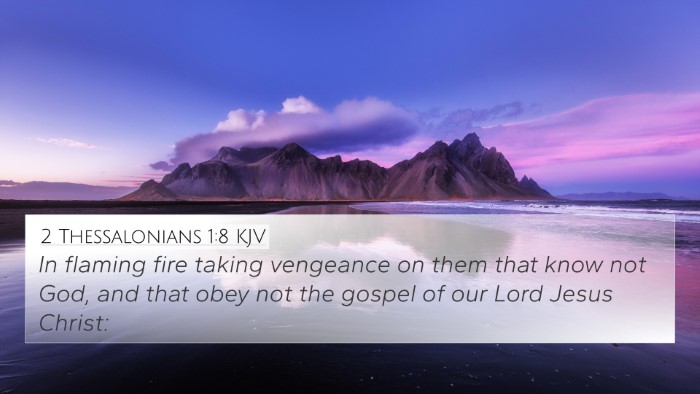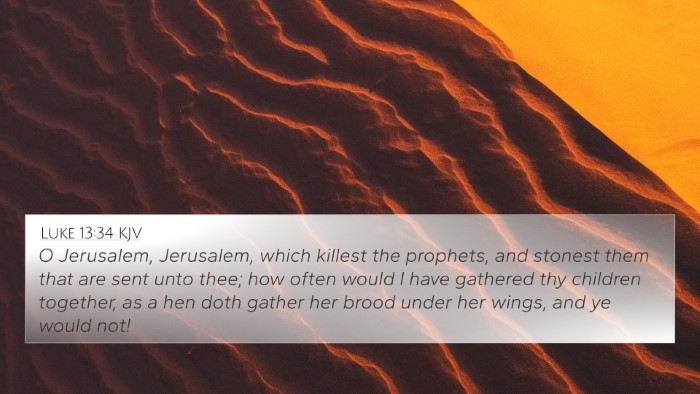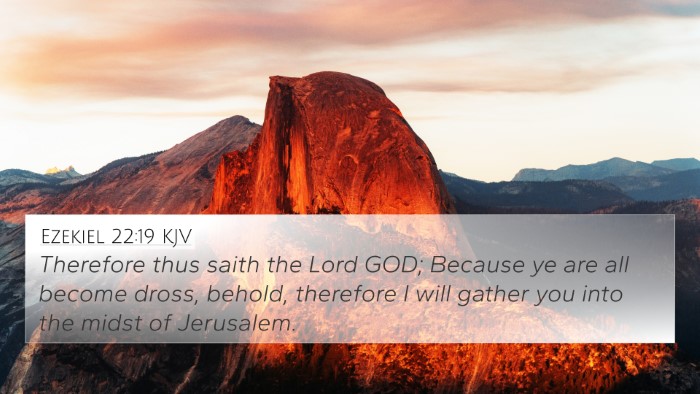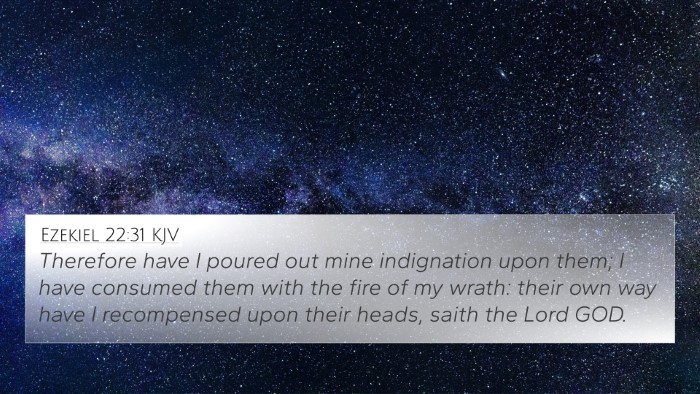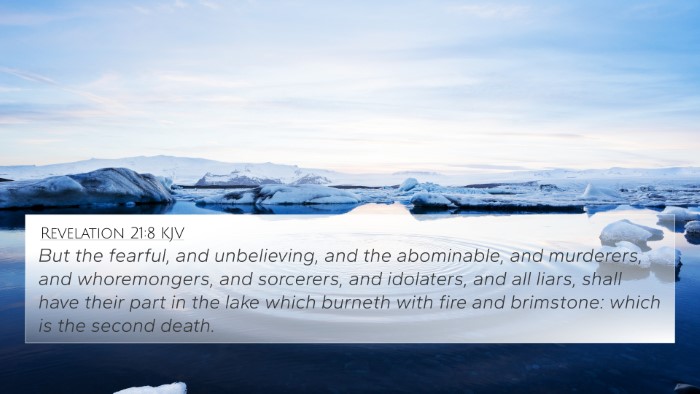Ezekiel 24:9 - Overview and Commentary
Ezekiel 24:9 (ESV) reads: "Therefore thus says the Lord God: Woe to the bloody city, to the pot whose corrosion is in it and whose corrosion has not gone out of it! Take out of it piece after piece; no piece of it may be used, for the people are not gathered to me."
This verse is part of a larger prophetic message delivered by Ezekiel concerning the judgment of Jerusalem. The imagery used provides a rich tableau for understanding the Lord's disdain for the city's wickedness and the ultimate fate that awaits it if the people do not repent.
Understanding Key Symbols in Ezekiel 24:9
-
Bloody City: This phrase refers specifically to Jerusalem, highlighting the violence and bloodshed that characterized it. Matthew Henry expounds on this notion by explaining that the city is marked by sin and injustice.
-
Corroded Pot: The pot symbolizes the city itself and indicates the deep-seated corruption that has permeated its society. Albert Barnes elaborates on this metaphor, suggesting that just as a pot can become useless due to its corrosion, so has Jerusalem become afflicted by sin.
-
Piece After Piece: This expression denotes the gradual removal or destruction of what was once valuable. Adam Clarke comments on this idea, emphasizing the careful judgment and the systematic dismantling of Jerusalem’s significance.
Interpretive Insights from Public Domain Commentaries
According to Matthew Henry, this verse conveys a message of impending doom and a warning against the consequences of persistent sin. The imagery employed heightens the sense of urgency and reflects God's righteous judgment on His people for their unfaithfulness.
Albert Barnes reinforces this interpretation by noting that the "bloody city" serves as a stark reminder of Jerusalem's historical acts of rebellion against God. He mentions that while the pot may still seem structurally intact, its inherent corruption renders it utterly useless for divine purpose.
Adam Clarke echoes these sentiments by suggesting that the corrosion in the pot indicates a deeper moral decay among the people, hinting at the fragility of their spiritual state. He warns that the eventual "taking out" of pieces from the pot symbolizes a disruptive and painful judgment that will come to those who reject God's call to repentance.
Cross-References for Ezekiel 24:9
This verse has several significant cross-references that provide a more comprehensive understanding of its themes. Here are some critical connections between Bible verses:
- Isaiah 1:21: "How the faithful city has become a whore, she who was full of justice! Righteousness lodged in her, but now murderers." - This verse reflects the corruption of Jerusalem and its moral failure, similar to the themes in Ezekiel 24:9.
- Lamentations 1:15: "The Lord has rejected all my mighty men in my midst; he has summoned an assembly against me to crush my young men; the Lord has trodden as in a winepress the virgin daughter of Judah." - It speaks to the destruction and despair due to sin within the city.
- Jeremiah 19:3-4: "You shall say, ‘Hear the word of the Lord, O kings of Judah and inhabitants of Jerusalem: Thus says the Lord of hosts, the God of Israel: Behold, I am bringing such disaster upon this place that the ears of everyone who hears of it will tingle.’" - Demonstrates God’s warning through prophets about Jerusalem's fate.
- Ezekiel 22:2: "And you, son of man, will you judge, will you judge the bloody city? Then declare to her all her abominations." - Calls attention to the judgment of the "bloody city," reinforcing Ezekiel's messages.
- Micah 3:10: "Who build Zion with blood and Jerusalem with iniquity!" - Highlighting Jerusalem's construction and existence on wickedness.
- Revelation 18:2: "And he called out with a mighty voice, 'Fallen, fallen is Babylon the great! She has become a dwelling place for demons, a haunt for every unclean spirit...'" - Points to the ultimate downfall of cities characterized by unfaithfulness akin to that of Jerusalem.
- Ezekiel 15:6: "Therefore thus says the Lord God: Like the wood of the vine among the trees of the forest, which I have given to the fire for fuel, so I will give up the inhabitants of Jerusalem." - The fate described is similar, expressing God's judgment on fruitless works.
- 2 Kings 21:16: "Moreover, Manasseh shed very much innocent blood till he had filled Jerusalem from one end to another." - This historical context illustrates the profound violence present at the time.
- Daniel 9:24: "Seventy weeks are decreed about your people and your holy city..." - Points towards the future judgment and redemption of Jerusalem.
- Matthew 23:37: "O Jerusalem, Jerusalem, the city that kills the prophets and stones those who are sent to it!" - Jesus’ lamentation reflects the ongoing tragedy of Jerusalem's rebellion against God.
Thematic Cross-Referencing: Understanding the Bigger Picture
The themes present in Ezekiel 24:9 resonate throughout both the Old and New Testaments. The idea of divine judgment based on a city's conduct is prevalent and can be seen in the warnings issued by other prophets and fulfilled in the New Testament by Christ’s references to Jerusalem.
-
Divine Judgment: The consistent biblical theme of God’s judgment on cities for their unfaithfulness is a motif that runs through Scripture, urging believers to heed the call to righteousness.
-
Moral Corruption: Ezekiel's warning reflects a timeless truth concerning the dangers of moral decay, a theme echoed in Proverbs and elsewhere.
-
Restoration and Hope: While judgment is assured, the prophetic voices throughout the Bible also herald a promise of restoration, a thematic thread that provides hope amidst despair.
Applying the Insights: Tools for Cross-Referencing Scripture
Engaging with cross-references allows for a deeper understanding of biblical texts and themes. Several tools can aid in the process:
- Bible Concordance: A tool that organizes verses by keywords, aiding in the discovery of related passages.
- Bible Reference Resources: Comprehensive guides that offer context and connections between various scripture verses.
- Cross-Reference Bible Study: Engaging in study methods that explicitly look for links and related passages enhances comprehension.
- Bible Chain References: A method of linking verses thematically to trace theological concepts across different books.
- Comparative Bible Verse Analysis: Analyzing connections and contrasts between verses can reveal deeper meaning.
Conclusion: Reflecting on Ezekiel 24:9
As we meditate on Ezekiel 24:9, we are reminded of the gravity of sin and the judgment that follows. This text and its cross-references initiate an important dialogue about the need for repentance and returning to God. Engaging with the broader biblical narrative through cross-referencing enriches our understanding of Scripture and nurtures our spiritual lives.
